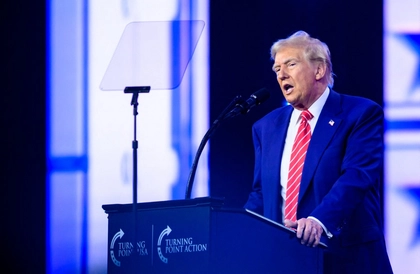Germany’s defence minister said he was open to sending German soldiers to Ukraine to help secure a demilitarised zone there if a ceasefire were agreed with Russia, in remarks published Saturday.
In an interview with the Suddeutsche Zeitung newspaper, Boris Pistorius also said Germany should aim to spend around three percent of GDP on defence.
JOIN US ON TELEGRAM
Follow our coverage of the war on the @Kyivpost_official.
US President-elect Donald Trump wants members of the NATO military alliance to devote five percent of their national output on defence, a demand that has already been rejected as too high by German Chancellor Olaf Scholz.
Asked about a possible deployment of German troops to help secure a buffer zone between Russia and Ukraine if one were agreed, Pistorius said: “We’re the largest NATO partner in Europe. We’ll obviously have a role to play.”
He said the issue would “be discussed in due time”.
Trump, who takes office on Monday, said during his election campaign he could end the conflict between Ukraine and Russia in fewer than 24 hours. His camp has since indicated that he needs more time.
Discussions could nevertheless start soon, notably with a meeting between Trump and Russian President Vladimir Putin.
But Ukraine is not currently in a position of sufficient strength to start any peace negotiations with Russia, NATO secretary general Mark Rutte said on Monday.
Pistorius said Russia was currently occupying “18 or 19 percent of Ukrainian territory”. But despite nearly three years of war, it had “not gained more” than that and had suffered “extensive losses in its own army” in the attempt.

‘Fiscal Steroids Are Wearing Off’ – Biden’s Sanctions on Russia Bear Fruit Just as He Is Set to Leave
The United States claimed recently that Moscow had lost nearly 1,500 men a day in November.
Asked about the contribution Germany should make towards NATO defence spending, Pistorius said: “We should be talking more about three percent than two.”
Germany currently devotes around two percent of its GDP to defence.
On January 9, Chancellor Olaf Scholz rebuffed Trump’s demand for NATO members to raise defence spending to five percent of GDP.
For Germany, that would mean finding an additional 150 billion euros every year, he said.
You can also highlight the text and press Ctrl + Enter










